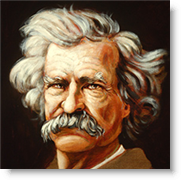
There were two things Jeroen talked about regarding music taking off:
Social Appeal. Everyone else is listening to it, so it must be good. Or, someone I trust listened to it, or likes it, so it must be good. Or a major influencer listened to it and recommends it. This is a word-of-mouth recommendation.
Substance/Quality. The band really is *that* good. Other examples: What kind of car is the best car to buy (the one that won’t be in the shop every other month)? What is the best computer, pen (I know people who are pen connoisseurs, and have a favorite pen that is the bomb), hamburger, french fries, tshirt, socks, shoes, etc.? I hate shopping at the dollar store because the crap they sell is usually broken before we get home.
I’m not an expert in the psychology of why people buy things, nor am I an expert in why people hire, but it really made me think about what we can do, as job seekers (interviewers, candidates, etc.) to increase our chance of getting hired. Let’s take these two points and relate them to YOU, as the product, making yourself more appealing.
Change “Social Appeal” to Emotions or feelings. I’m hungry, I’m bored, sad, lonely, happy, ecstatic, proud, satisfied, hot, cold, etc. I remember hearing that if we are trying to memorize something, and we can tie emotions into the memorization process, we’ll have a much better chance of memorizing it, because those emotional ties are so strong. Who hasn’t made an emotional purchasing decision (or bought on a whim)?
I think the most important thing here is sharing stories. Stories make your numbers, and your experience, and your skillz come to life. When I was in marathon interviews (as an interviewer), all of the resumes seemed to look the same, and all the lame answers to my questions were the same. It was all cliche, and I was dying for something to jump off the page… to be different. If you tell me stories, I will be able to get out of my gray boring funk of listening to blah blah blah and hopefully become enthralled by your story. (did I just use a story to illustrate the power of stories??)
Later, when I mentally sift through all the interviews, you’ll probably stick out because of the stories you told. Others gave facts, with no emotion, but YOU gave stories. And thank goodness there are mini-stories on your resume, to help me remember you even more.
Substance. I’ve been wondering how to write about this for a long time. Many job seekers want that next great gig, but they aren’t good enough for it. They don’t have the skills, abilities, experience or education they really need to be successful. For example, I can’t be a doctor right now. I can’t apply to be a staff accountant, a chip designer at a semiconductor plant… get the point? I don’t have the substance, or quality, to be that right hire.
I wonder how many of us are applying for jobs that really are beyond our reach. Just because we read Good to Great does not mean we can be the next great CEO. Just because we read Jack (about Jack Welsh) does not mean we are ready to lead a team at GE, or any other company. Just because we read an article on project management (or take a MBA-level project management class) does not mean we are ready to be a project manager.
Do you have substance? Do you have the professional depth to make you the right candidate? If not, I can only suggest two things: Either you are shooting too high, and are not realistic, so you need to manage your expectations better, OR you need to build substance. Get what you need to have the deep substance that will make you the right hire.
What can you do to make yourself more hireable?

This post echoes a point being hammered home to me a lot lately: we need more authenticity, no matter what it is that we’re marketing, and especially if it is ourselves. People can easily spot a fraud.
I’ve been on both sides of the desk and always said (from the hiring side of the desk) many people in job transition can not read. They skim the ad copy and say, I would like to have this job and apply. I’m always amazed that about 50% of all the job applications attached a file to the email called “resume.doc” and the other 50% would use some easy to understand file name like, “first, last name resume 2008.”
But I would also like to think that those that read this blog understand their skill sets, value and core competencies. Therefore, they are able to apply for positions within their reach. Unfortunately, the recipient of most resumes (computer or human) has been programmed or trained to make sure a candidate has 100% of the predetermined skills or core competencies and not just 90%.
As leaders, when was the last time we hired someone who was beyond their reach only to be excited about their performance, willingness to learn and the value they added to the team?
There is this process that happens to stand out in an interview: know your accomplishments, know your numbers about your accomplishments, and have your accomplishments stand out through the stories you tell.
To get to that point requires a concerted effort by the person looking for the job to figure out their accomplishments, their numbers and their stories. In addition, you really need to practice telling your stories. At least then, when asked a question about their accomplishment, they have had the opportunity to run through it a few times before telling it to a decision maker.
But it is hard enough to have someone understand their accomplishments!